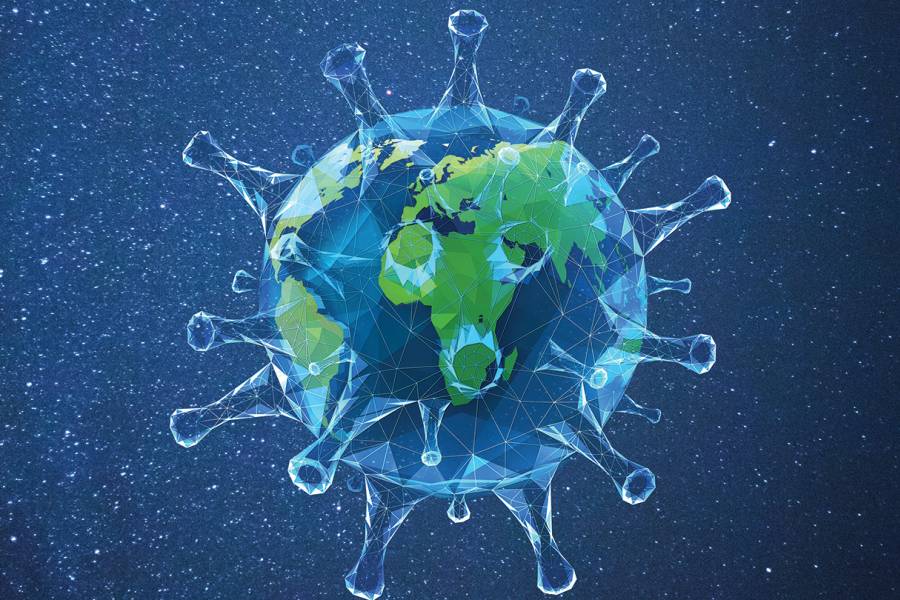The COVID-19 pandemic has had an immediate and profound impact, taking nearly half a million lives to date and causing global economic devastation. But as former U.S. Secretary of State Henry Kissinger recently warned, "The coronavirus epidemic will forever alter the world order," wreaking not just immediate havoc but forever reshaping our lives and the structures of our institutions, cities, countries, and society.
"Even as we at Johns Hopkins University are striving to meet the challenges and devastation of the virus in the immediate term, we are also considering the lasting impact of this extraordinary moment on the global landscape," says Johns Hopkins University President Ronald J. Daniels, who will deliver introductory remarks Tuesday morning.
To discuss, debate, and reimagine the future in the wake of the coronavirus pandemic, dozens of prominent faculty members and researchers from across Johns Hopkins and beyond will convene on June 30 and July 1 for the virtual World Order After COVID-19 Forum. Hosted by the JHU SAIS Henry A. Kissinger Center for Global Affairs, the event will engage world-renowned experts in public health, medicine, economics, international security, ethics, and governance to chart a path forward. See full conference agenda.
These conversations will become the basis for COVID-19 and World Order: The Future of Conflict, Competition, and Cooperation, a collection of essays due out in fall 2020 from Johns Hopkins University Press.
Also see
Former Google CEO and Chairman Eric Schmidt is set to deliver the forum's keynote address at 11 a.m. Tuesday on the power of technology to impact our lives and our world. Event co-organizers Francis J. Gavin, director of the Kissinger Center, and SAIS Professor Hal Brands cite Schmidt as one of the most thoughtful, insightful analysts examining the shifting role of technology.
"He recognizes the incredible power of technology to impact lives," Gavin says. Consider its role in the current pandemic, allowing for the continuation of scientific research, collaboration, delivery of goods, and more in a way that would have been incomprehensible a decade ago. "Eric has a better understanding of those possibilities than anyone. He also has a better understanding of the potential challenges and dark sides of this new technology, in particular as we move to a world where artificial intelligence and automation and robotics provide great opportunities."
Leading off day two of the event is a conversation with former U.S. Treasury Secretary Lawrence H. Summers, who "has thought about the long-term economic consequences of this crisis more than anyone," Gavin says.
The economic toll of the coronavirus pandemic is compounded by underlying economic trends, including globalization and widening inequality, according to Gavin. "There are great dangers but also opportunities to rethink our economic policies—both to help us get out of this horrendous economic hold we've gotten in and also to think about economic reforms to deal with many of the underlying issues that have been with us for some time."
The Henry A. Kissinger Center for Global Affairs, founded in 2016, is the ideal host for a forum centered on the shifting geopolitical order, Gavin says.
"Johns Hopkins has long been recognized as a world leader in epidemiology and global public health, and they've long been recognized as a world leader in biomedicine and medical therapies and technologies," he says. "What I think is less known—particularly with the creation of the Kissinger Center a few years ago—is that Johns Hopkins has some of the best talent to think about questions of world order. We are pulling together talent from both within and outside the university that I think few other universities in the world could."
Adds SAIS Dean Eliot Cohen: "As part of Johns Hopkins SAIS, it bridges the worlds of theory and practice, and looks to history to illuminate the problems of the future. We are proud of the Kissinger Center's unique convening power, and prouder still of the clarity it will bring to this subject."
The World Order After COVID-19 Forum will be held virtually on June 30 and July 1; register for free in advance.
Posted in Politics+Society
Tagged conferences, coronavirus, covid-19, kissinger center for global affairs








